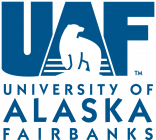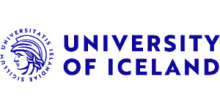Central North Atlantic Marine Historical Ecology Project
Navigating the New Arctic (NNA) is one of NSF's 10 Big Ideas. NNA projects address convergence scientific challenges in the rapidly changing Arctic. The Arctic research is needed to inform the economy, security and resilience of the Nation, the larger region and the globe. NNA empowers new research partnerships from local to international scales, diversifies the next generation of Arctic researchers, enhances efforts in formal and informal education, and integrates the co-production of knowledge where appropriate. This award fulfills part of that aim by addressing interactions between social systems and natural environment in the following NNA focus areas: Arctic residents, Data and Observation, Global Impact, and Resilient Infrastructure.
Atlantic cod has been an important resource for coastal and inland communities throughout the Atlantic world for at least 1000 years. This humble fish played an important role in feeding communities, developing markets, and facilitating trade and continues to be a vitally important species. Management decisions made about existing cod populations are based on scientist’s ideas of what a baseline ‘normal’ or ‘natural’ cod population is. This ‘baseline’ for cod is mostly based on data from the last 100-150 years, including how large cod populations have been, how large the fish have been, how old, etc. On top of this are ideas of how these fish respond to changing human and environmental conditions. A variety of techniques from marine biology, archaeology, and history now allow us to track changing marine ecological conditions as well as relative population size over the last millennium. By creating a deeper record of cod populations over the last millennium, this project contributes vital data that will improve understanding of the cod fisheries as they reacted to climate, political and economic change in the past and how the Icelandic fishing communities of today can adapt and remain resilient as the fishery changes with warming Atlantic waters and new political and economic drivers. The project uniquely involves international and transdisciplinary research between the natural environment and social systems including archaeology, ecology, history, fisheries and oceanography. The knowledge gained from the project is beneficial to our planning strategy to deal with impacts of environmental change on American fisheries and the people who depend on them. The new interdisciplinary methodology also provides novel opportunities for educating university students.
The project will use bones from cod as well as other coastal species that have been excavated from archaeological sites in Iceland and the Faroes over the last 30 years. These sites were lived in from the 9th to the 19th centuries. These bones will be the subject of a variety of biochemical analyses that allow us to track population size, body length, and feeding changes over the last millennia. These analyses will be combined with archaeological and historical methods to build a new and deeper record of the relationship between cod, humans, and the environment that will serve as an important tool in managing this relationship in the present and future.
This award reflects NSF's statutory mission and has been deemed worthy of support through evaluation using the Foundation's intellectual merit and broader impacts review criteria.
This collaboration between Hambrecht (2022656, U of Maryland) and Misarti (2022618, UAF) looks back over 1100 years of cod fishing and societal changes in Iceland; integrating archeological, zooarcheological, and historical techniques to expose feedbacks between the physical environment, cod stocks, and social development among Icelanders. Data sources will include historical archives, otolith scans, DNA analyses (both bulk and individual proteins), sediment cores, and stable isotope ratios of oxygen, nitrogen and carbon from otoliths and other biogenic material. No fieldwork will be conducted.





